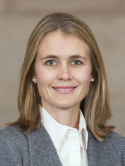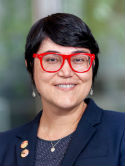Evaluating bias in speaker introductions at the American Society for Radiation Oncology Annual Meeting Journal Article
| Authors: | Huang, C. C.; Lapen, K.; Shah, K.; Kantor, J.; Tsai, C. J.; Knoll, M. A.; Duma, N.; Gillespie, E. F.; Chino, F. |
| Article Title: | Evaluating bias in speaker introductions at the American Society for Radiation Oncology Annual Meeting |
| Abstract: | Purpose: Introducing a physician without a professional title may reinforce bias in medicine by influencing perceived credibility. We evaluated differences in the use of professional titles in introductions of speakers at recent American Society for Radiation Oncology (ASTRO) Annual Meetings. Methods and Materials: We reviewed recordings from the 2017 to 2019 ASTRO Annual Meetings and included complete introductions of speakers with a doctoral degree. Professional introduction was defined as “Doctor” or “Professor” followed by the speaker's full or last name. We collected use of professional introduction, introducer gender, speaker gender, and speaker professional and demographic variables. Identified speakers were sent surveys to collect self-reported demographic data. Analysis was performed using χ2 tests and multivariable logistic regression (MVA). Results: Of 3267 presentations reviewed, 1226 (38%) met the inclusion criteria. Overall, 805 (66%) speakers and 710 (58%) introducers were men. Professional introductions were used in 74% (2017), 71% (2018), and 69% (2019) of the presentations. There was no difference in the use of professional introductions for male and female speakers (71% vs 73%; P = .550). On MVA, male introducers were associated with decreased use of professional address (odds ratio [OR], 0.36; 95% confidence interval [CI], 0.26-0.49; P < .001). At the 2019 conference, professional introduction was less likely to be used (2019 vs 2017: OR, 0.68; 95% CI, 0.49-0.96; P = 0.026). Those who self-identified as Asian/Pacific Islander were twice as likely to receive a professional introduction compared with those who identified as white (OR, 1.95; 95% CI, 1.07-3.64; P = .033). Conclusion: Male introducers were significantly less likely to introduce any speaker, regardless of gender, by their professional title, and overall use of professional introductions decreased from 2017 to 2019. Furthermore, no difference in professional introduction use by speaker gender was identified at the recent ASTRO meetings. Implementing speaker guidelines could increase the use of professional introductions and raise awareness of unconscious bias at future ASTRO meetings. © 2020 Elsevier Inc. |
| Keywords: | adult; controlled study; conference paper; demography; radiotherapy; practice guideline; oncology; confidence interval; radiation oncology; gender; awareness; pacific islander; logistic regression; population statistics; odds ratios; demographic variables; demographic data; methods and materials; human; male; female; ego development; doctoral degrees; multi variables; professional aspects |
| Journal Title: | International Journal of Radiation Oncology, Biology, Physics |
| Volume: | 110 |
| Issue: | 2 |
| ISSN: | 0360-3016 |
| Publisher: | Elsevier Inc. |
| Date Published: | 2021-06-01 |
| Start Page: | 303 |
| End Page: | 311 |
| Language: | English |
| DOI: | 10.1016/j.ijrobp.2020.12.027 |
| PUBMED: | 33373658 |
| PROVIDER: | scopus |
| DOI/URL: | |
| Notes: | Conference Paper -- Export Date: 1 June 2021 -- Source: Scopus |
Altmetric
Citation Impact
BMJ Impact Analytics
Related MSK Work







